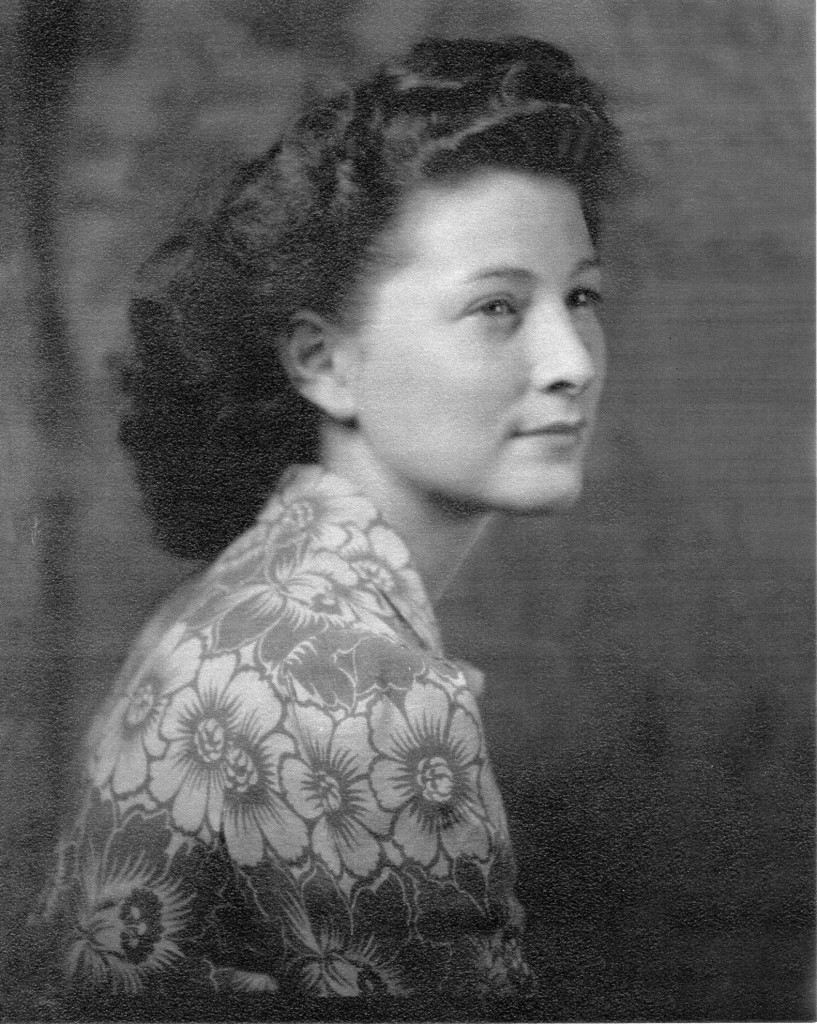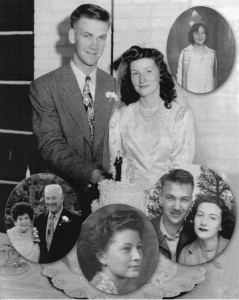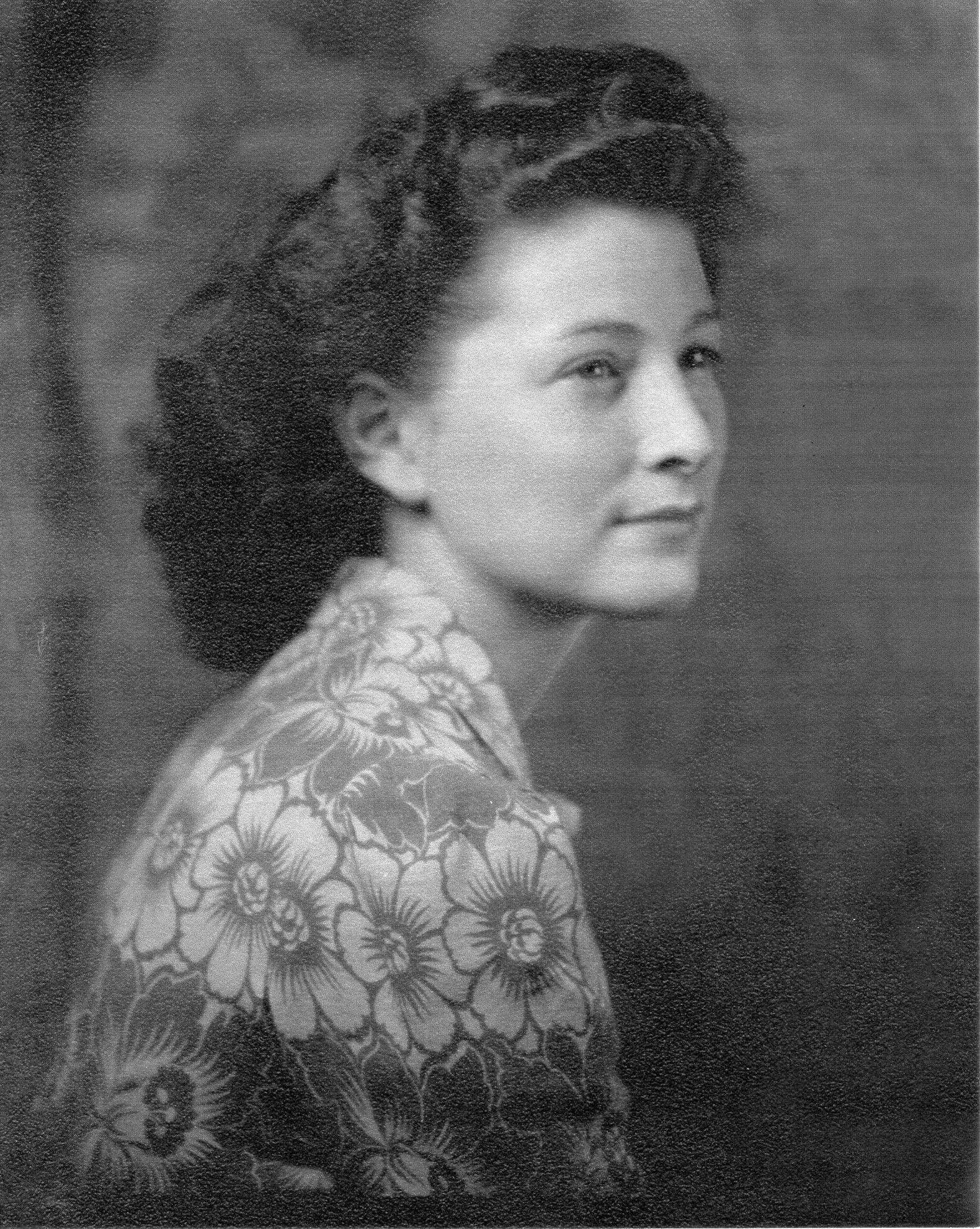Tips to help you interview your loved ones to preserve family history for future generations
 Warm tears wound down my cheeks. I don’t remember. I can’t remember.
Warm tears wound down my cheeks. I don’t remember. I can’t remember.
It was bedtime with my daughter. The usual hugs, kisses, cuddles and songs weren’t enough tonight. She started asking about Great Grandma Cannon, who passed away eight years before my daughter was born.
What did she look like? Like a 1940s movie star, with dark waves of hair and red pouty lips.
What did you do with her? We went bargain shopping, we lounged and we watched movies; we traveled to California and Mexico; we talked and hosted tea parties.
Did she have pets? Oh yes! A silly little toy poodle named “Muffy” that was fiercely protective of her.
I was fortunate to be close to my Grandma for 25 years, so I could answer those questions when my daughter was curious enough to ask.
But then…
What was her voice like?
Slowly, my eyes filled with tears and my voice choked as a realization dawned. I can’t remember. It’s been nearly 16 years since my Grandma passed away unexpectedly, and I can’t remember the sound of her voice. I wish she had left a journal. I wish she had written her history. Most of all, I wish I could hear her own story in her own words, in her own voice. That’s when I realized I needed to craft tips to help others interview loved ones to preserve family history for future generations.
 Now I make sure others aren’t left with these same regrets. Tell your tale. Record your story. Write your history. Leave a print, make a video and record audio. Someday, those who love you will want to know who you were, what you valued, what you enjoyed, what your voice sounded like. Make sure they can remember.
Now I make sure others aren’t left with these same regrets. Tell your tale. Record your story. Write your history. Leave a print, make a video and record audio. Someday, those who love you will want to know who you were, what you valued, what you enjoyed, what your voice sounded like. Make sure they can remember.
How can you be a catalyst to ensure a loved one’s story is preserved for future generations?
These tips will help you get started interviewing a family member or telling your own tale:
- Start with a quality list of questions that invite reflection and thoughtful responses. (Resources abound, including Legacy Tale’s free e-book.)
- Recognize that time is a finite resource for all of us; prioritize questions to ensure you capture what’s most important.
- Discuss with your loved ones which questions and answers will be most meaningful to future generations, and start there. (For me, the most important questions are about lessons learned from facing challenges and overcoming trials.)
- Video certainly has value. But if you don’t have the expertise or equipment to capture video, don’t let that delay you. Record audio for now. It’s free and simple, with lots of apps available for your phone.
Share the audio file with loved ones. - Type and share the transcript.
- Repeat as often as possible.
Don’t leave your tale untold.
 About the author: Hilarie H. Robison, M.A., founder of LegacyTale.
About the author: Hilarie H. Robison, M.A., founder of LegacyTale.
Hilarie is a writer who believes in leaving a legacy of faith for loved ones. With a graduate degree in policy, she spent many years using words professionally to change public policy and opinion, to train and motivate and educate. At best, those words sometimes inspired. Yet they didn’t leave the meaningful legacy she craved. Now she helps others use words in giving meaning to a life well-lived, to help good people recall the past and reflect on the present, to capture and preserve tales of legacy. You can get more great tips from Hilarie and the team at LegacyTale by following them on Facebook, Instagram and Pinterest.





2 Comments
ADA MARIE JENSEN says:
January 31, 2016 at 11:14 pm
I’m so impressed! THANK YOU FOR SHARING THESE IDEAS.
rachellacour says:
February 1, 2016 at 4:33 pm
Thanks so much for reading!